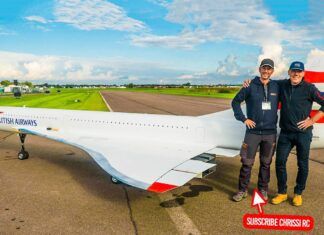Pulling no punches, Cessna Aircraft Company Chairman, CEO and President Jack J. Pelton last week labeled the FAA’s proposed scheme of user fees and increased general aviation fuel taxes a “bailout” for U.S. airlines. Pelton’s remarks came in a Feb. 23 speech to the University of Northern Colorado, touching on the general aviation industry’s recent successes, the advances in technology potentially making future aircraft and air transportation more exciting, and the major obstacle to continued success: user fees. Putting his cards on the table, Pelton’s prepared remarks stated, “After an intense lobbying campaign by the nations airlines, the FAA this year has proposed to radically change the way it is funded. Instead of the stable, non-bureaucratic gas tax, the FAA is proposing to switch to user fees — the same method retarding the natural free-market growth in Europe we might otherwise expect to see given the dynamics of that economy. In Europe, the airlines rule the skies, shutting out other air travel alternatives.” Pelton went on to gaze into his figurative crystal ball, painting a picture of declining general aviation growth, stifled overall domestic economic activity and reduced U.S. economic competition internationally, all because of airlines getting “the bailout they seek” from the FAA’s reauthorization proposal. “What the FAA is proposing is to create a new bureaucracy to collect user fees, which they admit will bring in less than they get now, and would result in an unstable funding stream dependant on continued growth of the system,” Pelton said in his remarks.
Listing problems with the FAA’s user-fee proposal, Pelton also labeled as “fact” the following industry talking points:
- The nations air traffic control system was developed primarily to control airline movements into and out of the large hub airports in the U.S.
- Only 3 percent of the activity at the countrys 20 largest airports is considered general aviation.
- General aviation aircraft primarily use secondary or small regional airports. They do not fly to hub airports.
- The FAA wants to modernize air traffic control but they have not yet defined a plan for doing that.
- Airlines are losing money. And many are in bankruptcy.
In Pelton’s view, it all adds up to a “bailout” of the airlines by the federal government. Pelton added that the general aviation industry’s $203 billion economic impact in 2006 and the 1.2 million jobs created in whole or in part by this industry will decline if the FAA/airline user-fee scheme is enacted. “How much — it is impossible to say. But instead of growing to meet the global demand and retaining our national leadership in general aviation, we will retreat and ultimately lose out to Japan, to Brazil, to Canada,” he added, ultimately ending his speech by calling on attendees to “weigh in with your legislators.” Good advice, that.

































